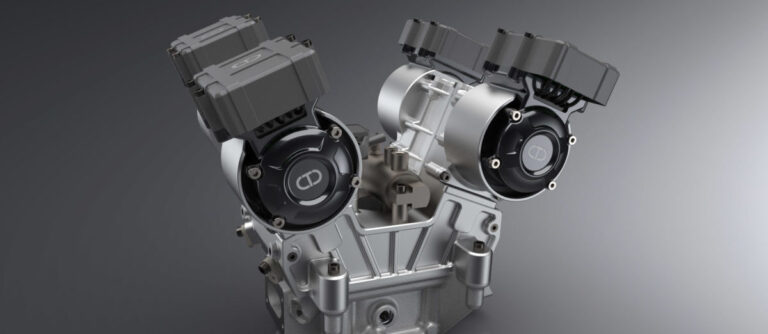Camcon Automotive has said that, after a period of successful development of Intelligent Valve Technology (iVT) in gasoline engines for passenger cars, it is now looking at the potential for the technology in the HDD market. Heavy-duty diesel (HDD) truck fleets could save millions of dollars in fuel costs and commercial vehicle OEMs could meet increasingly stringent emissions regulations, according to the UK company.
Neil Butler, technical consultant, Camcon Automotive, said, “All key combustion process parameters have been under digital control for some time now. But breathing has been stuck under the control of increasingly complex but essentially mechanical variable valvetrain systems. iVT is as big a leap forward as the change from carburetors to electronically controlled fuel injection.”
In the iVT system, control of the valves is achieved through the use of electronic actuators, rather than a mechanical system with a camshaft. The result is effectively infinite control over valve timing and lift. The company noted that this could bring significant benefits in commercial truck applications, from cold start emissions performance, to exhaust gas recirculation to on-demand cylinder deactivation and management of harmful pollutants like NOx.
It also suggested the system could be used to reduce the size, weight and cost of the aftertreatment equipment fitted to HDD engines while also providing better control of the exhaust aftertreatment temperature. This would mean catalysts can be maintained at their optimum operating temperature over a greater proportion of the drive cycle.
Beyond the potential of the hardware, Camcon envisages the creation of a software suite that would allow calibration of the system through machine learning, combining hardware and software in one package, resulting in the most optimized ICE yet: what it terms the digital engine.
The company asserted that the most significant gains would come from fuel consumption reduction, and said it can improve the efficiency of the average HDD truck by 5%. For an average that would save almost £2,500 (US$3,100) a year in diesel; so for an average fleet of six HGVs, an operator could save £15,000 (US$19, 00).
Butler highlighted, “Extrapolated across the entire UK haulage fleet, iVT could save the industry close to half a billion pounds in diesel every year. With more than three million heavy-duty diesel trucks sold worldwide and each vehicle having a lifetime of over 10 years it is very easy to see just how much of a massive effect our system could have.
“Another factor to consider is that heavy-duty trucks require long ranges as well as rapid unloading and loading – so electrification is a lot further away than it is in the passenger car industry. We believe iVT can reduce running costs, dramatically improve emissions and require no change to the current refueling infrastructure.”
The company revealed to Engine + Powertrain Technology International that it is currently in high level discussions with both European and Asian manufacturers of HDD engines, and hopes to begin collaboration toward integrating the technology into production units in the near future.


